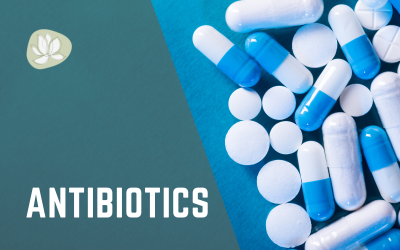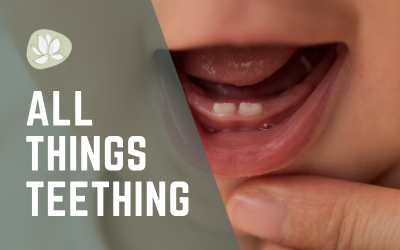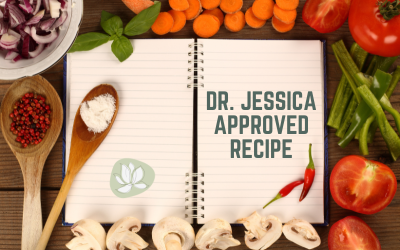Our bodies are incredibly adaptive and have evolved to survive in different conditions. Regarding caloric intake, our bodies have mechanisms to store fat in case of scarcity or hibernation, a trait inherited from our ancestors. However, these mechanisms are less critical for our survival in today’s modern world. As a society, we eat way too much. Intermittent fasting can come to the rescue, mimicking older patterns of survival eating, jump-starting your energy levels, and resetting your baseline health. Still, it’s important to understand the times in life to fast (and when NOT to).
Intermittent fasting, a dietary pattern involving alternating periods of eating and fasting, has gained considerable attention for its numerous health benefits. It is not a specific diet but rather a scheduled eating pattern. During the fasting periods, individuals abstain from consuming calories, while during the eating periods, they consume regular meals. The duration of fasting and eating windows can vary depending on personal preferences and the specific intermittent fasting protocol followed.
Monitoring the amount and quality of food is just as important as the timing. What I like to tell my patients is to mix it up – make it irregular. If you are constantly doing a 16/8 fasting to eating window daily, that’s an eating method, not intermittent fasting. However, mixing it up with a 16/8 or 12/12, or 10/14 window of fasting/eating and then throwing in a few 24-hour fasts once or twice a month is intermittent fasting. Where people fail is huge portions during their “eating window” or not focusing on high fats and proteins to break their fasts with.
While both men and women can enjoy the advantages of intermittent fasting, there are specific considerations for women regarding timing, cycles, and reproductive stages.
Women in Their Childbearing Years
Women who are in their childbearing years, but are not actively trying to conceive, can experience various benefits from a modified form of intermittent fasting, including:
- Improved Insulin Sensitivity: Intermittent fasting enhances insulin sensitivity, which is particularly crucial for women at a higher risk of developing insulin resistance and type 2 diabetes. By improving insulin sensitivity, intermittent fasting helps the body utilize glucose more efficiently, reducing the risk of chronic conditions.
- Hormone Regulation: Intermittent fasting has a positive impact on hormone regulation, including insulin, growth hormone, and cortisol. Hormonal balance significantly affects metabolism, inflammation reduction, and overall well-being. Additionally, intermittent fasting can help balance estrogen and progesterone levels, alleviating premenstrual syndrome (PMS) symptoms and other menstrual irregularities.
- Weight Control: Intermittent fasting can be a powerful tool for weight loss, as it reduces overall caloric intake and improves metabolic rate. For women struggling with weight loss due to hormonal imbalances, intermittent fasting can provide valuable support in achieving their weight goals.
The critical takeaway for menstruating women is to stay within a 10/12 fasting period when cycling, not more than this. A few days before and all during your cycle, increase your iron-rich foods such as
- Organic Red Meat: Beef, lamb, and pork are excellent sources of heme iron, which is highly absorbable by the body.
- Organic Poultry: Chicken and Turkey.
- Seafood: Shellfish, such as clams, mussels, and oysters, are rich in iron. Also include fish, particularly sardines, salmon, and tuna.
- Organic Legumes: Beans, lentils, and chickpeas, are plant-based sources of iron. Pairing them with vitamin C-rich foods like red, green, or yellow peppers can enhance iron absorption.
- Organic Spinach and Leafy Greens: Dark leafy greens like spinach, kale, and Swiss chard are packed with iron. They are also rich in folate and other essential nutrients. (Be careful with spinach if you are prone to body aches or Charlie horses, especially at night!)
- Organic Nuts and Seeds: Pumpkin seeds, sesame seeds, hemp seeds, and cashews are examples of iron-rich nuts and seeds.
- Organic Dried Fruits: Raisins, apricots, prunes, and dates are dried fruits that contain iron. They make for convenient, portable snacks.
Pregnant or Nursing Women
For pregnant or nursing women, it is crucial to prioritize their bodies’ nutritional needs. During these periods, the body requires increased calories and nutrients to support the growth and development of the baby. Therefore, it is not recommended to restrict food intake through fasting. Instead, the focus should be on consuming clean and nutrient-dense sources of protein, vitamins, and minerals throughout the day. It is important to note that breastfeeding alone expends significant energy, equivalent to walking an extra seven miles per day. While our culture may encourage you to ‘get back to your pre-baby size,’ remember that your body has been through an intense evolution, and now is the time, more than ever, for food to be its medicine. Rest, heal, and grow your baby through nursing. Do not restrict calories.
It is crucial for women to recognize that their bodies have undergone significant changes during pregnancy and childbirth, and allowing food to be a source of nourishment and healing is of utmost importance. Similarly, women in the postpartum phase, especially within the first three months, should prioritize a nourishing diet that supports healing from within. Includes consuming high-fat, protein-rich foods and incorporating warming (spices, teas) ingredients that aid recovery. Your protein should still be 100g daily, and sugars (including fruit) under 40g daily—no food timing restriction when nursing for optimal healing.
Ah, the infamous in-between years! You’re not pregnant, nursing, wanting to get pregnant, yet not in menopause. Now is a great time to do intermittent fasting with strict attention to cycling time. Remember 10/12 hour fasting to eating window, lots of iron-rich foods, concentrating on high fat, quality proteins, and low sugars.
Menopause and Beyond
For women who have entered menopause and are experiencing hormonal changes associated with aging, you will find out quickly how you’ve taken care of yourself through the years. Lack of sleep, adrenal fatigue, overeating, poor digestion, and lack of movement may mean these years hit you hard. Getting an adrenal stress test, an inflammatory food test, hormone blood testing, and then developing an exercise and food regime based upon these results is tantamount to your success. It’s not as easy to say eat less and exercise more because your body is exhausted, so it will hoard everything in hopes you can heal.
We are always here to support you on your journey toward optimal health. Our team is dedicated to assisting you in achieving your health goals. Schedule a phone consult today to receive personalized guidance and embark on your path to well-being.




Recent Comments